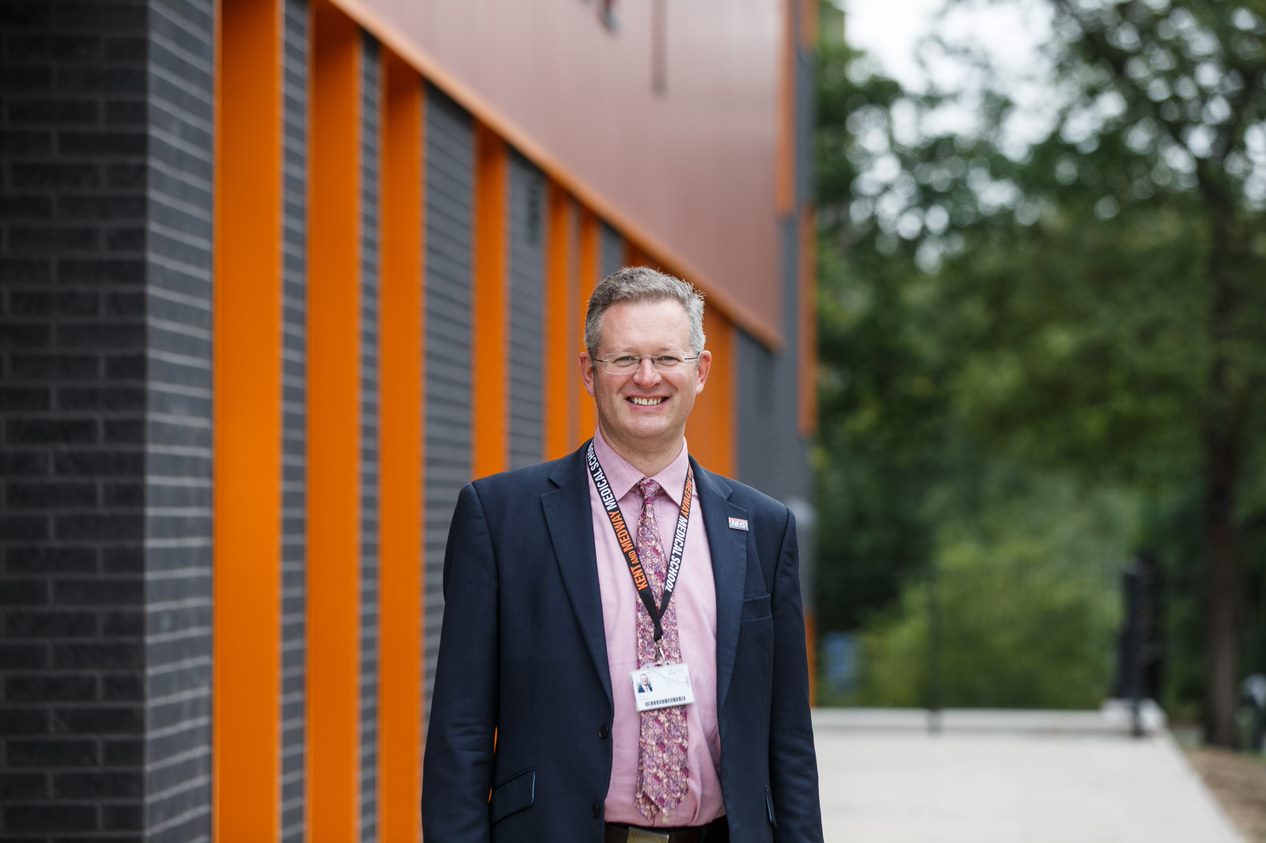It would be all too easy to allow this Leadership Blog to focus on nothing but the pandemic, but the legacy and history of Kent and Medway Medical School (KMMS) began long before the pandemic and will outlast it many times over.
Right now, Kent and Medway are at the epicentre of a SARS-COV-2 outbreak that is threatening to overwhelm the National Health Service (NHS). We are all finding the third lockdown hard and feelings of exhaustion, anxiety, fear, grief, frustration and anger are commonplace. I have experienced them myself, both as Dean of the medical school and as a practising NHS Consultant in Intensive Care at Maidstone and Tunbridge Wells NHS Trust.
However, in the midst of a pandemic, the University of Kent and Canterbury Christ Church University have achieved something amazing, while overcoming many foreseen and unforeseen challenges. Together, we have opened a new medical school and welcomed an inaugural year of 108 students.
Our vision for KMMS is that our graduates are excellent practitioners who will have a local, regional, national and international impact. Our pioneer cohort will graduate in summer 2025 and is made up of students selected from a pool of 1,537 applicants, including people who would not normally have had the opportunity to study medicine were it not for KMMS. This application rate has been matched again this year and has exceeded our expectations for widening participation in the profession of medicine (we had a target of 22% for students from widening participation backgrounds in our first year and achieved 37%).
Medical education in the UK is influenced by many different regulators and funding bodies, each of which has a stake in how our programme is designed, delivered and quality assured. Despite these multiple stakeholders, one of the most stimulating aspects of being Founding Dean has been the opportunity to create a new programme that will meet the needs of our graduates during professional careers that will start in 2025 and may last to 2065 and beyond. Building on the contemporary programme from Brighton and Sussex Medical School, we have ensured that the core learning required by our regulator is augmented with opportunities for students to graduate with skills in digital medicine, personalised medicine, leadership and management, an elementally collaborative and interprofessional approach to practice and, of course, a sense that keeping the patient at the centre of everything they do is of prime importance. Our programme has drawn in colleagues from across both universities already and will continue to do so in greater amounts as our programme grows and develops.
A new medical school requires new and specialist facilities, staff and resources, and seeing this all come together has been one of the most professionally satisfying periods of my career. Our students have been able to study (within socially distanced guidelines) in the Pears Building since October and now the STHEM building at Christ Church is ready too. These state-of-the-art buildings are wonderful and also between them house the first human anatomy facility and the first high-fidelity simulated GP suite to be built in Kent and Medway.
What has been key to our multiple successes so far has been the unmitigated support of the two universities and members of our local and regional communities. KMMS has had unstinting support from the whole healthcare economy of Kent and Medway; political, business and other leading citizens have unreservedly supported us, and the general public has taken an interest in and supported the medical school in a truly humbling fashion.
Some of this support has been financial; Hilary Edridge (Lady Melville) has led a team of people who have helped us raise over £22 million to support the opening of the school and to provide scholarships for our students. The support we have received has also taken the form of advocacy, partnership, enterprise and support for the research endeavour of the medical school and both partner universities.
The current pandemic has brought into sharp focus both what a wonderful institution the NHS is, and how 21st century healthcare researchers are able to mobilise a global response to a global threat and compress years of work into a few short months. Future KMMS graduates will graduate with the ability to contribute to practice and research that will benefit patients and society in the future. The medical school will act as a novel catalyst for both the University of Kent and Canterbury Christ Church University to further grow in their civic missions, impact and significance. A lot of hard work remains to be done between now and 2025, but even before then I hope we will all see benefits from the opening of KMMS and new and exciting opportunities arising.
Professor Chris Holland | Dean of Kent and Medway Medical School

